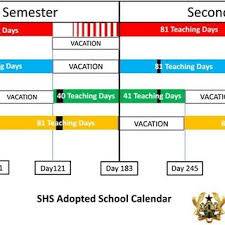The Future of Ghana's Education: Examining the Double-Track Debate
The debate over Ghana’s double-track secondary school system has intensified, sparking concerns about the potential consequences of its abolition. Introduced in 2018 as part of the Free Senior High School (SHS) policy, the double-track system aimed to address infrastructure deficits and ensure equitable access to education. While it has provided opportunities for millions of students, critics argue that the system's drawbacks outweigh its benefits.
The double-track system divides the academic year into two shifts—green and gold—to accommodate more students in schools that lack adequate facilities. This approach, while increasing enrollment, has faced criticism for its impact on teaching quality and students’ learning experiences. Many teachers and parents believe the shortened instructional periods compromise academic excellence, leaving students ill-prepared for tertiary education or the job market.
However, calls to abolish the system have sparked questions about the preparedness of Ghana's educational infrastructure to handle a potential influx of students under a single-track framework. Critics of the abolition argue that without significant investments in classroom facilities, dormitories, and teacher recruitment, Ghana risks exacerbating overcrowding and diluting the quality of education.
Proponents of abolishing the double-track system believe that with adequate funding and a well-executed plan, the country can transition to a more efficient single-track system. They argue that the current system disrupts family life, creates scheduling conflicts, and places undue pressure on teachers.
The government has shown commitment to improving education, evidenced by ongoing school construction projects and teacher training initiatives. However, concerns persist regarding the pace of these reforms and whether they can meet the demands of the growing student population.
As stakeholders, including educators, parents, and policymakers, deliberate the future of the double-track system, it is imperative to strike a balance between access and quality. While expanding access to education is commendable, it should not come at the expense of academic standards or equitable learning opportunities.
The fate of millions of students hangs in the balance. Whether the double-track system remains or is replaced, one thing is clear: Ghana must invest in a robust and sustainable education framework that addresses current challenges while preparing for future demands. The time to act is now, for the future of the nation’s youth depends on the decisions made today.



No comments yet
Be the first to share your thoughts!